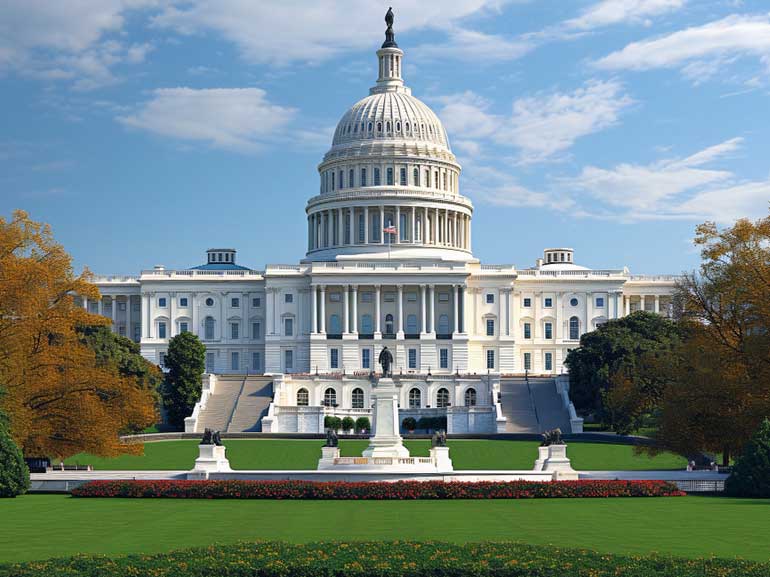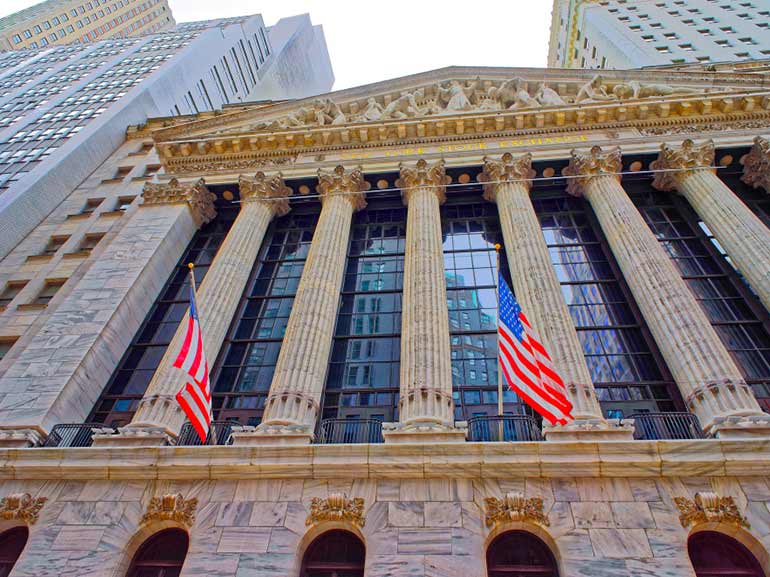U.S. Government Shutdown Hits: What It Means for Markets
After a gridlocked Congress failed to pass a funding bill, the U.S. federal government has officially entered its first shutdown in six years, sending ripples through financial markets and casting uncertainty over the economic outlook.
Let’s break down what this means and how it could affect the broader economy and markets moving forward:

TL;DR
The U.S. federal government has entered its first shutdown in six years after Congress failed to pass a funding bill before the 1 October 2025 deadline.
While essential services continue, non-essential government functions are paused, and federal employees face delayed pay.
Financial markets reacted cautiously, stock futures dipped slightly, and gold surged as investors sought safety.
Analysts expect limited short-term impact, but a prolonged shutdown could trigger broader economic and market disruptions. Still, only time will tell what lies ahead.
What Is a Government Shutdown?
A government shutdown happens when Congress fails to pass the necessary funding bills to keep federal agencies and operations running. In the United States, this usually occurs when lawmakers and the President cannot agree on annual budget legislation or stopgap funding before the new fiscal year starts on 1 October 2025. As a result, non-essential government services are temporarily halted until funding is approved.
Why Shutdowns Occur
A shutdown happens when Congress does not pass either the regular appropriations bills or a temporary funding measure (known as a continuing resolution) before current funding runs out. These delays are often the result of political disputes over government spending levels, policy priorities, or the broader budget process.
The Potential Effects of a Government Shutdown
Public services may be disrupted, and federally operated sites like national parks and museums may close.
Federal employees and government contractors may face delayed pay, creating financial strain.
The broader economy can suffer due to lost productivity, reduced consumer spending, and missed government revenue from fees and halted operations.
Shutdowns are a feature of the U.S. budget system and can have far-reaching economic and social consequences until a funding agreement is reached. (Source: ABC News)
How Did the Markets React to the Government Shutdown?
Market Response Overview
Financial markets responded to the government shutdown with modest declines and increased caution, but no major sell-off occurred by the shutdown deadline. U.S. stock index futures, such as the Dow Jones, S&P 500, and Nasdaq, dipped slightly by 0.1% to 0.2%, reflecting investor concern over potential disruptions to economic data and government operations. Despite these jitters, equities closed the quarter with solid gains, and historical patterns suggest that shutdowns typically cause short-term volatility rather than lasting damage to market performance.
Immediate Reaction
Stock futures edged lower as news of the impending shutdown broke, with investors wary of delays in key federal data releases and the reduced functioning of government agencies.
The Dow, S&P 500, and Nasdaq experienced slight declines but remained relatively stable, finishing the third quarter on a strong note despite uncertainty.
Gold prices surged sharply as fears of a U.S. government shutdown escalated, rising from around $3,800 to over $3,870 per ounce between Monday (29 September 2025) night and Wednesday (1 October 2025) morning. The rally was driven by heightened political uncertainty, a weakening U.S. dollar, and a spike in safe-haven demand. Contributing factors included delayed federal economic reports, particularly the nonfarm payrolls, adding uncertainty to Federal Reserve policy expectations. Moreover, the dollar index dipped to a one-week low, making gold more attractive to international buyers, while markets began pricing in possible Fed rate cuts. Increased ETF inflows and central bank purchases added to the momentum, reinforcing gold’s role as a preferred safe-haven asset during U.S. political crises and broader market stress.
What Does a Government Shutdown Mean for the Markets?
Analyst Insights
Analysts generally expect limited market impact from a short-term shutdown. However, a prolonged closure could lead to stock market pullbacks.
Investor sentiment turned more cautious, especially due to concerns that delays in reports, like the September jobs report, could affect Federal Reserve policy decisions.
Historical data shows that since 1981, several shutdowns have coincided with S&P 500 declines of 5% or more, though none resulted in a recession or market crash.
Outlook
While the market’s initial response was restrained, prolonged or more disruptive shutdowns could dampen economic momentum and trigger deeper market corrections, especially if essential federal data releases remain delayed. For now, however, market volatility and investor concern have been largely contained.
Still, only time will tell what actually lies ahead.
Conclusion
The current U.S. government shutdown underscores the risks that political gridlock can pose to the economy and financial markets. While the immediate market reaction has been measured, with modest stock dips and a spike in gold, investors remain wary of prolonged uncertainty.
Key economic data delays and potential impacts on Federal Reserve decision-making add to the complexity. If the shutdown extends, we could see more significant effects on market sentiment, government services, and economic growth.
For now, markets are holding steady, but the situation remains fluid, and developments in Washington will be closely watched in the days ahead.
*Past performance does not reflect future results. The above are only projections and should not be taken as investment advice.
FAQs
What triggers a government shutdown?
A shutdown occurs when Congress fails to pass the necessary appropriations bills or a temporary funding resolution before existing government funding expires.
What services stop during a shutdown?
Non-essential services like national parks, museums, and some administrative operations are paused. Essential functions, such as law enforcement, air traffic control, and emergency healthcare, continue.
How have markets reacted in the past?
Markets usually show short-term volatility but recover quickly once a shutdown ends. Historically, shutdowns have not led to long-term market downturns or recessions.
Why did gold prices rise during this shutdown?
Gold surged as investors sought safe-haven assets amid political uncertainty, a weakening dollar, and expectations of potential Federal Reserve rate cuts.
Could this shutdown impact Federal Reserve decisions?
Yes, delayed economic reports, especially employment data, could limit the Fed’s visibility, potentially influencing upcoming interest rate decisions.






